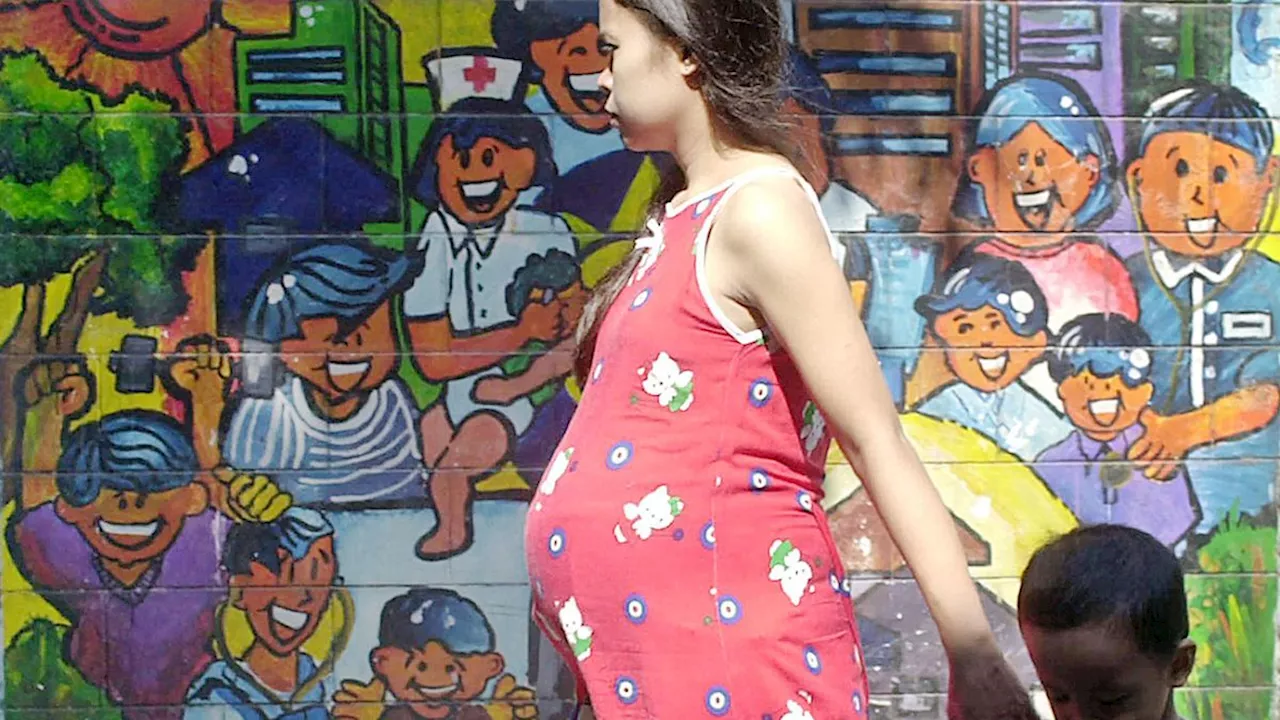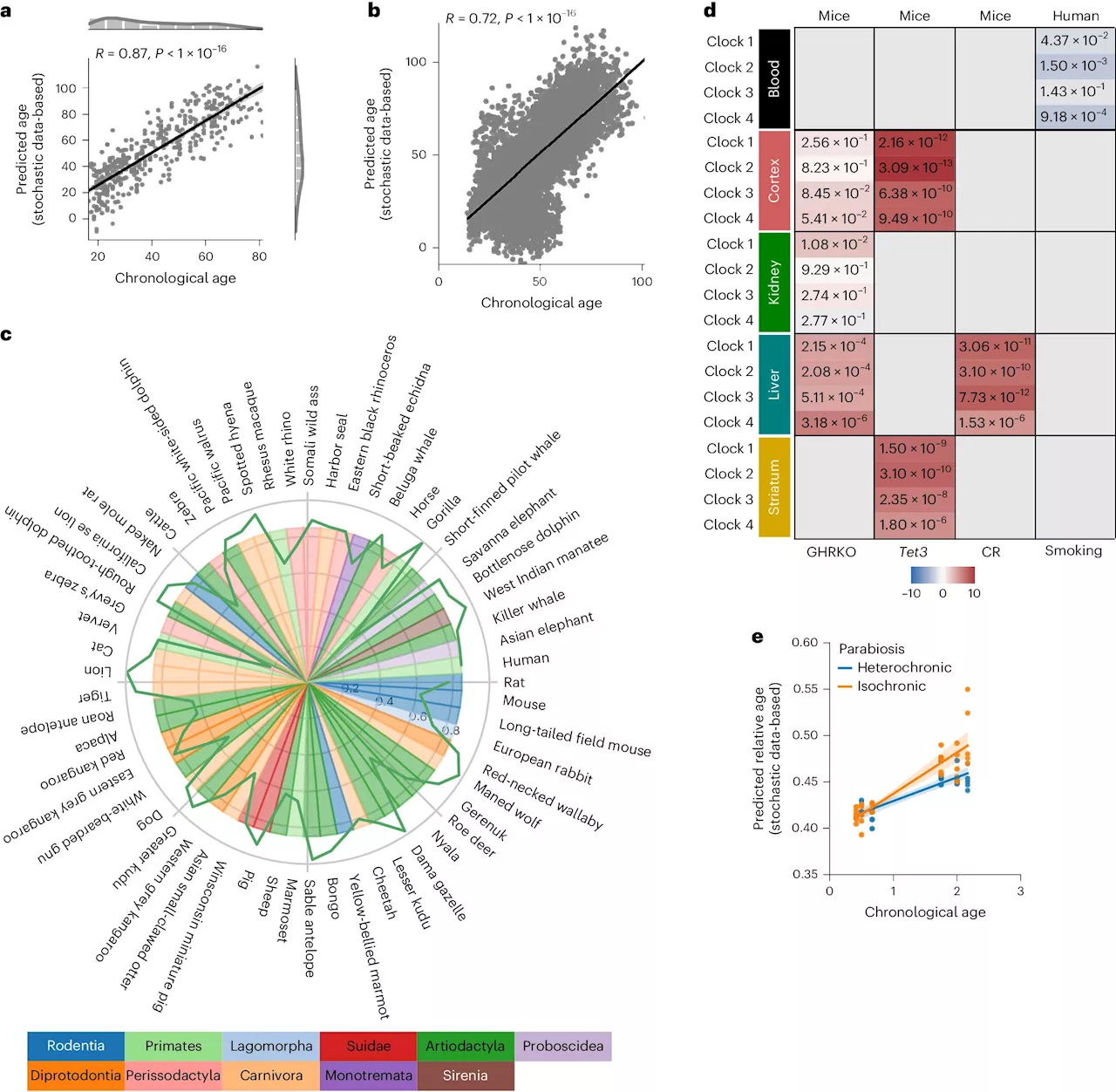Aging clocks can measure the biological age of humans with high precision. Biological age can be influenced by environmental factors such as smoking or diet, thus deviating from the chronological age that is calculated using the date of birth. The precision of these aging clocks suggests that the aging process follows a program.
Scientists have now discovered that aging clocks actually measure the increase in stochastic changes in cells.
The loss of control over the cells and the increase in stochastic variation is not restricted to DNA methylation. Meyer and Schumacher demonstrate that the increase in stochastic variations also in the gene activity can be used as an aging clock."In principle it would be feasible to take this even further, allowing the stochastic variations in any process in the cell to predict age," Schumacher said.
Meyer and Schumacher hope that their findings on loss of regulation and the accumulating stochastic variations will lead to new interventions that can tackle the root cause of aging and may even lead to cellular rejuvenation. A target for such interventions could be repairing stochastic changes in DNA or improved control of gene expression.
Stem Cells Menopause Vitamin C Dementia K-12 Education Hearing Impairment Infant And Preschool Learning
United States Latest News, United States Headlines
Similar News:You can also read news stories similar to this one that we have collected from other news sources.
 Pregnancy accelerates biological aging in a healthy, young adult populationPregnancy may carry a cost, reports a new study. The research shows that women who reported having been pregnant looked biologically older than women who had never been pregnant, and women who had been pregnant more often looked biologically older than those who reported fewer pregnancies.
Pregnancy accelerates biological aging in a healthy, young adult populationPregnancy may carry a cost, reports a new study. The research shows that women who reported having been pregnant looked biologically older than women who had never been pregnant, and women who had been pregnant more often looked biologically older than those who reported fewer pregnancies.
Read more »
 Pregnancy may speed up 'biological aging,' study suggestsNicoletta Lanese is the health channel editor at Live Science and was previously a news editor and staff writer at the site. She holds a graduate certificate in science communication from UC Santa Cruz and degrees in neuroscience and dance from the University of Florida.
Pregnancy may speed up 'biological aging,' study suggestsNicoletta Lanese is the health channel editor at Live Science and was previously a news editor and staff writer at the site. She holds a graduate certificate in science communication from UC Santa Cruz and degrees in neuroscience and dance from the University of Florida.
Read more »
 Rethinking Age: Scientists Uncover Molecular Fingerprint of Biological AgingScience, Space and Technology News 2024
Rethinking Age: Scientists Uncover Molecular Fingerprint of Biological AgingScience, Space and Technology News 2024
Read more »
 How aging clocks tick: New study points to stochastic changes in cellsAging clocks can measure the biological age of humans with high precision. Biological age can be influenced by environmental factors such as smoking or diet, thus deviating from chronological age that is calculated using the date of birth. The precision of these aging clocks suggests that the aging process follows a program.
How aging clocks tick: New study points to stochastic changes in cellsAging clocks can measure the biological age of humans with high precision. Biological age can be influenced by environmental factors such as smoking or diet, thus deviating from chronological age that is calculated using the date of birth. The precision of these aging clocks suggests that the aging process follows a program.
Read more »
 Unlocking Longevity: New Study Reveals Brain-Muscle Clock Synchronization Prevents AgingScience, Space and Technology News 2024
Unlocking Longevity: New Study Reveals Brain-Muscle Clock Synchronization Prevents AgingScience, Space and Technology News 2024
Read more »
 Turning Back the Biological Clock With Antioxidant SupplementsScience, Space and Technology News 2024
Turning Back the Biological Clock With Antioxidant SupplementsScience, Space and Technology News 2024
Read more »
